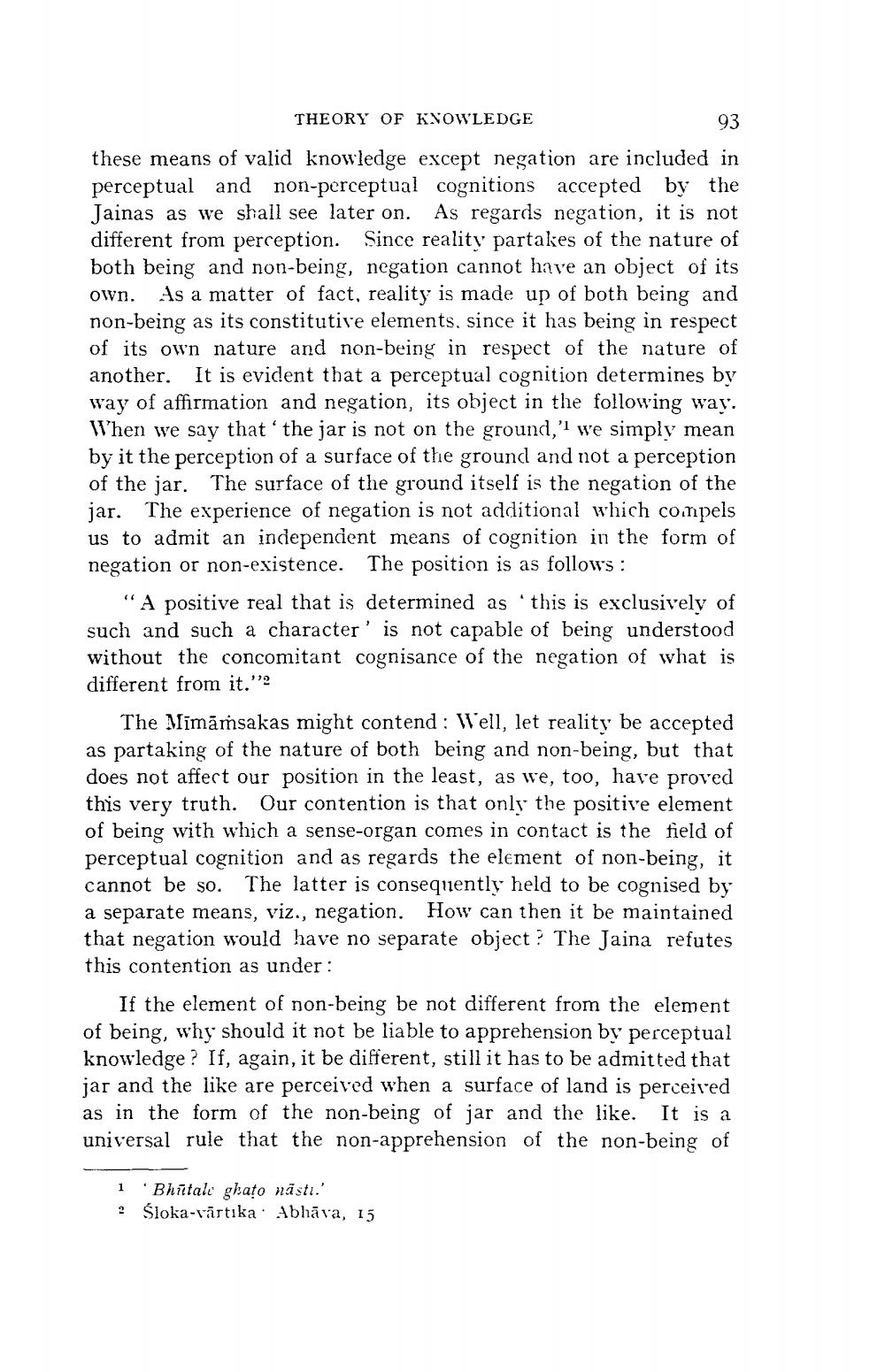________________
THEORY OF KNOWLEDGE
93
these means of valid knowledge except negation are included in perceptual and non-perceptual cognitions accepted by the Jainas as we shall see later on. As regards negation, it is not different from perception. Since reality partakes of the nature of both being and non-being, negation cannot have an object of its own. As a matter of fact, reality is made up of both being and non-being as its constitutive elements, since it has being in respect of its own nature and non-being in respect of the nature of another. It is evident that a perceptual cognition determines by way of affirmation and negation, its object in the following way. When we say that the jar is not on the ground,' we simply mean by it the perception of a surface of the ground and not a perception of the jar. The surface of the ground itself is the negation of the jar. The experience of negation is not additional which compels us to admit an independent means of cognition in the form of negation or non-existence. The position is as follows:
“A positive real that is determined as 'this is exclusively of such and such a character is not capable of being understood without the concomitant cognisance of the negation of what is different from it."?
The Mimāṁsakas might contend: Well, let reality be accepted as partaking of the nature of both being and non-being, but that does not affect our position in the least, as we, too, have proved this very truth. Our contention is that only the positive element of being with which a sense-organ comes in contact is the field of perceptual cognition and as regards the element of non-being, it cannot be so. The latter is consequently held to be cognised by a separate means, viz., negation. How can then it be maintained that negation would have no separate object? The Jaina refutes this contention as under:
If the element of non-being be not different from the element of being, why should it not be liable to apprehension by perceptual knowledge? If, again, it be different, still it has to be admitted that jar and the like are perceived when a surface of land is perceived as in the form of the non-being of jar and the like. It is a universal rule that the non-apprehension of the non-being of
1 'Bhitali ghato năsti.' • Śloka-vārtika · Abhāva, 15




